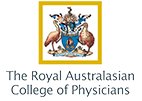Brisbane Ulcerative Colitis Specialist
What is Ulcerative Colitis?
Ulcerative colitis is an inflammatory disease that involves the inner lining of the colon and rectum. These are the last two parts of the digestive tract and are more commonly known as the large intestine and the bowels. As most organs and systems in the body, they are broken up into layers, with ulcerative colitis affecting the inside-most layer of these tubes – the mucosal layer.
This condition is chronic and causes ulcers to form along this mucosal layer. As this layer is the mucosal layer, producing mucous normally, these ulcers in turn produce too much mucous as well as pus. Not surprisingly, this causes considerable abdominal pain as well as the need to empty the bowels regularly. Blood in the stool, fatigue and mucous in the stool can commonly occur as well.
The inflammatory process of Ulcerative colitis can also affect areas of the body outside the bowels such as the skin, the joints, and the eyes.
Ulcerative colitis generally occurs in flares - periods of time when the condition flares up and symptoms are worse. As there is no cure through medication, the periods where symptoms are minimal are known as periods of remission, as the disease will eventually return.
Generally speaking, the mechanism behind ulcerative colitis is not yet well understood. It is believed that an abnormal immune response or an interaction with infection may be triggers for the condition. Treatment often starts with medication, but between a quarter and a third of patients do not respond well or are unable to take the medication due to side effects. For a large group of people, taking advantage of surgery can be the answer to freedom from these medications and the debilitating symptoms of ulcerative colitis.
Could I have ulcerative colitis?
Having ulcerative colitis can be concerning, debilitating and extremely stressful. Symptoms can include:
- Diarrhoea - the stress and anxiety of needing to run for relief at any time,
- Waves of abdominal pain and cramps, which can occur at unpredictable times,
- Loose mucousy stools
- Stools that contain blood from the colon or rectum
Despite these common symptoms, some people suffering from ulcerative colitis may only experience mild symptoms. These people often still seek treatment to minimise damage and related symptoms that can occur. Weight loss, decreased appetite and low energy are some of the related symptoms of ulcerative colitis, and can in cases be the only noticeable symptoms that lead to a diagnosis.
If you have any of these symptoms or concerns, speaking to a doctor who specialises in gastroenterological conditions and treatment is a great choice. Having one highly skilled practitioner cover your condition from diagnosis to long term management helps give you the best outcomes possible and streamlines the process.
Why have ulcerative colitis surgery
Whilst medication has been an option in management for ulcerative colitis for some time now, there are many reasons why people are now considering modern surgical treatments. Generally, these considerations can be divided into three categories:
Tolerance:
Medications for ulcerative colitis have a wide range of side effects, most commonly being immunosuppression. This is due to the limited understanding of ulcerative colitis limiting how targeted a medication can be, so general inhibition of the immune system is used to treat the disease.
However, suppressing the immune system causes a wide range of problems including being less able to fight infection and the risk of unusual infections. Medications such as steroids have side effects in addition to these such as modifying the body’s normal steroid and hormone systems can lead to weight changes, mood changes, diabetes and high blood pressure.
Whilst surgery does require some recovery time, many choose this as a more viable option long-term as once recovery is complete, symptoms are often greatly reduced or even cured.
Remission:
Surgery is viewed as definitive therapy for ulcerative colitis, whilst remission is the rule with medical treatment in most cases. For this reason, surgery is recommended not only for those not able to tolerate medical treatment, but those who suffer symptoms despite medical treatment, those who have been on treatment for 7+ years, or even to prevent the long-term risks of steroids. Speaking to an ulcerative colitis specialist may open up even more reasons why surgery may be a better option for you.
Outcomes:
Modern ulcerative colitis surgery offers excellent outcomes for patients. Whilst many decades ago procedures required the use of a stoma bag and long recovery times, modern surgery allows the bowels to remain functional and minimises your recovery time. Surgical treatment is not only the definitive cure for ulcerative colitis, but also decreases risk of colon cancer.
All surgery carries a degree of risk, so having a qualified surgeon perform this operation guarantees access to the best outcomes possible.
Dr Nanda has a specialist interest in inflammatory bowel disease, having qualifications from the Gastroenterological Society of Australia, the American Gastroenterological Association, the Royal Australia College of Physicians and the European Society of Gastrointestinal Endoscopy as well as being senior lecturer at the University of Queensland.
For advanced ulcerative colitis specialist care, evidence-based surgery and long-term support, book an appointment with Dr Nanda today.
St Andrew's Sessional Suites
Level 6, Suite 5
St Andrew's War Memorial Hospital
457 Wickham Terrace
Spring Hill, QLD 4000
Phone: 07 3554 0282
Fax: 07 3539 9811
Email: admin@drknandagastro.com.au
Opening Hours:
Monday to Friday, 8:30 AM-4:30 PM
Mater Private Hospital Brisbane
301 Vulture Street
South Brisbane, QLD 4101
Phone: 07 3554 0282
Fax: 07 3539 9811
Email: admin@drknandagastro.com.au
Opening Hours:
Monday to Friday, 8:30 AM-4:30 PM




